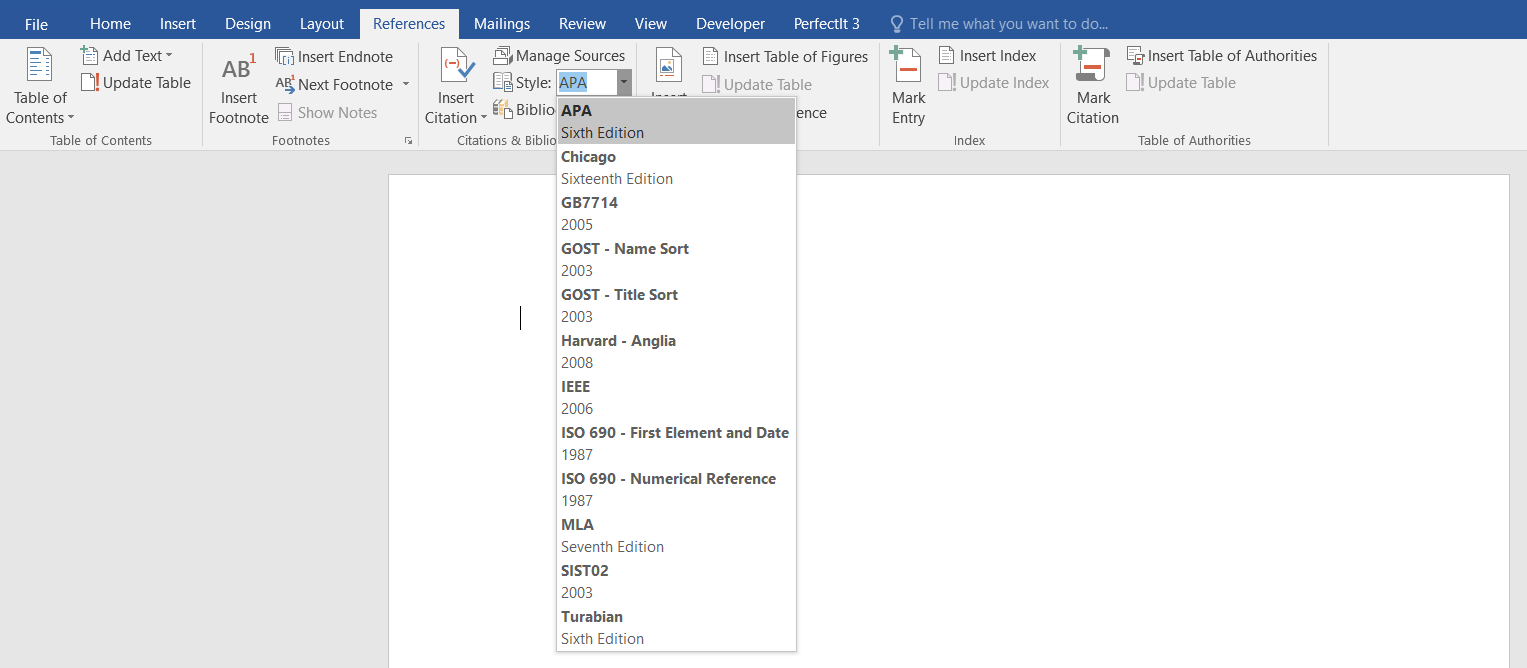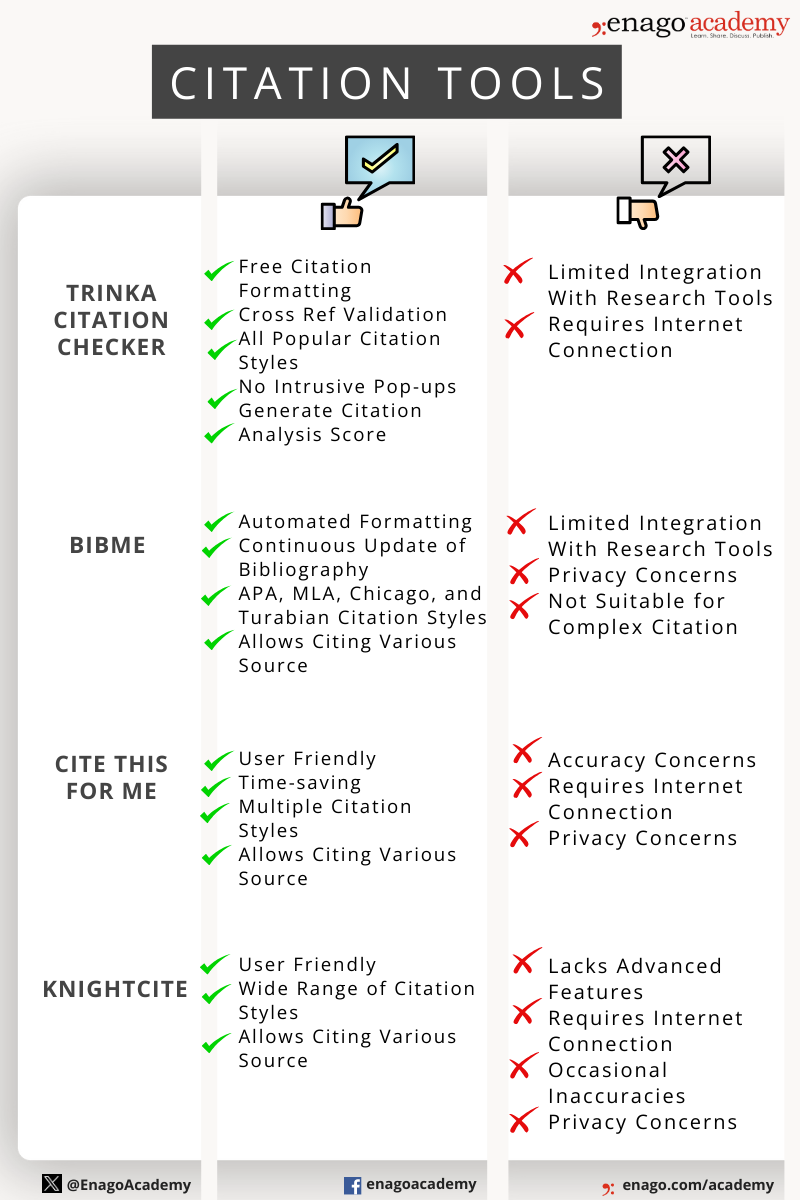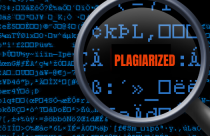Citing It Right – A guide to choose the best citation generator tool

Amy Anderson, a brilliant young researcher, had a burning passion for her work in quantum physics. After months of meticulously unraveling the mysteries of subatomic particles, she was finally ready to present her groundbreaking findings to the world. From writing the aim to drafting the discussion of her research, she had everything ready.
Alas! One thing stood in her way – the daunting task of managing references in her research paper.
Amy had documented every study which influenced her work. Her lab was a storehouse of books, journals, and sticky notes, each holding a clue to critical pieces of her research. One evening, she sat down to organize her references. She opened her laptop and found herself confronting the chaos of her citation library! Multiple references had accumulated over the months, and her references were scattered across different documents and folders. “This is a bibliographic nightmare!”, she thought.
Amy wished she could bend time like she believed particles could bend space. Her nerves frayed as her life became a cycle of reference management and caffeine-fueled research. Her once-clean desk now resembled a recycling center! As Amy was on the brink of despair, Sarah, her sister who was a high-school student, dropped by. She surveyed the chaos and caught the distraught look on Amy’s face.
“Hey Sandy Cheeks! Why do you appear lost?” Sarah asked, trying to lighten her mood. Amy sighed and explained her battle with managing references and generating citations. Sarah, seemed clueless and asked,
“Is citation really important?”
Amy explained, “Citation is one of the most important part of writing a research paper. It acknowledges the relevance of the original source of your research and gives it the credit which it rightfully deserves. Additionally, it guides other researchers to address unanswered questions in the domain. Citation acknowledges the relevance of others’ work in building our research and therefore play a key role in establishing your research rationale. Furthermore, it is required to add a citation whenever we add a quote or paraphrase an original reference to avoid the risk of plagiarism. Additionally, it provides a roadmap to the readers and assures them that your research is a result of extensive literature review and not castles in the air!”
Sarah exclaimed, “Oh! But I can see that you have already collected a lot of references. So, why can’t you just enter them in your manuscript? It is the reference that would matter anyway!” Amy sighed, “Sadly, it doesn’t work that way. There are several styles of citing a reference. Citation styles are basically a set of guidelines to cite your source. It is based on factors like the academic discipline, institutional principles and demands of the journal to which we submit our manuscript for publishing. Although I have all my references collected, I missed out on organizing them in a same style. So, it piled up and now I’m clueless on how to proceed!”
During this conversation, Amy’s senior Leo entered the room. He had been listening to the entire conversation. Leo said, “Seems like you are wrestling with a black hole! I heard your conversation with Sarah. Why don’t you try using a citation generator tool?”
Sarah seemed clueless. Leo smiled and continued, “Citation generator tools and citation tools are software or websites that creates citations and organizes your references. It automates the process of finding, annotating and formatting your references; thus saving time and efforts. This is even possible with the basic MS Word. Let me show you how!” Sarah seemed surprised and asked,
“How can one cite using MS Word?”
Leo opened MS Word in his laptop and demonstrated them how to insert a preferred style of citation using the application.


Leo continued, “MS Word provides a free option to cite your sources where all you have to do is select the citation style and place it in the end of the statement that needs to be cited. However, there are specialized citation tools with better features than MS word for managing citation. These tools can be helpful in building a personal collection of references which can be helpful in the future. Moreover, it simplifies the tedious task of organizing your references and formatting them in a single style, thus saving time and preventing mental burnouts.”
Amy asked,
“What are some easy to use tools to manage different citation styles?”
Leo replied, “Sure! I’m mailing you an infographic which my senior sent to me during my initial days.”
*Ding* The image was sent!

Amy opened the image. It had a list of different citation tools with the key features of each tool. Amy knew this would definitely save her another couple of hours scrolling through the internet to read about various tools and selecting one!
With newfound hope she used Enago Citation Generator, and to her astonishment, it transformed her library in minutes. It corrected the format and even checked for plagiarism! Amy felt like she had discovered the Higgs boson of reference management.
With her references finally in order, she completed her research paper with newfound energy and confidence. She copyedited her manuscript and resorted to Enago English proofreading services to give a final check to her manuscript. Amy’s manuscript was ready and polished and she finally submitted it to a prestigious scientific journal, and the response was overwhelming! Her work was hailed as a breakthrough in quantum physics, and Amy became a respected figure in her field.
Have you ever struggled to manage your references? Share your story in Enago Academy’s Open Platform to engage with the community.
Frequently Asked Questions
A citation generator is a tool or software application designed to help researchers, students, and writers create accurate and properly formatted citations for their academic or professional documents. It saves time and help writers avoid common formatting errors when creating citations, ensuring the accuracy and consistency of references in their work.
Determining the "best" APA citation generator can be subjective, as it often depends on individual preferences and needs. However, some popular and widely-used APA citation generators are Enago Citation Generator, Citation Machine, Purdue OWL, Citefast, Zotero and EasyBib.
Enago Citation Generator is one of the best free citation generator. Some key features of this tool include availability of all key citation styles, elimination of retracted citations, free citation formatting, generate quality scores etc.
Whether citation generators are allowed or not depends on the specific guidelines and policies of the institution, publication, or organization you are working with. In many academic and professional contexts, citation generators are generally considered acceptable tools for creating accurate and consistent citations. These tools can be helpful in ensuring that you follow the required citation style, such as APA, MLA, Chicago, or others. It's a good practice to consult your institution's or publication's guidelines to ensure you are following their policies.









